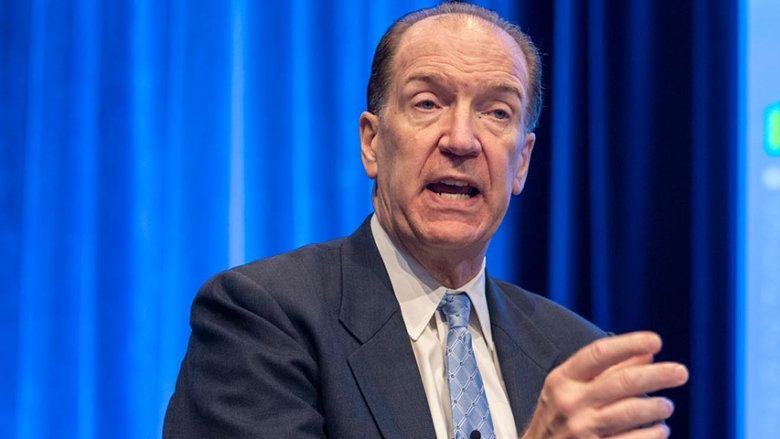MARKETS AND ECONOMY
World Bank Cuts Down Growth Prospect for Global Economy to 2%
Published
3 years agoon

By Rosemary Iwuala
David Malpass, The World Bank Group President, says global growth is expected to be weak in 2023, slowing to two per cent from 3.1 per cent in 2022.
Malpass said this in his Opening address at the ongoing Spring Meetings 2023 Media Call, a copy of which was obtained by the News Agency of Nigeria (NAN) on Monday.
Read Also:
He added that several factors were weighing on the second-half outlook.
“Oil prices have jumped back above 80 dollars/barrel. The recent banking sector stress dampens activities and inflation pressures persist,” he disclosed.
Malpass said, “the US month-over-month core inflation had been rising over the last five months, saying there would be new data on Wednesday.
“If we look at developing countries excluding China, we expect a slowdown to about 3.1 per cent in 2023 from 4.1 per cent in 2022.
“The concern in our recent reports is that slow growth will persist for years for many developing countries, increasing the fiscal stress and debt problems.
“It is a combination of weak investment, higher interest rates, and relatively weak growth in the advanced economies,’’ he added.
He also said the danger was acute due to inflation, currency depreciation, rising debt service costs, and the collapse of international reserves.
According to Malpass, the diversion of natural gas to Europe presented grave obstacles to developing country production of electricity, fertilizer, and food. These problems are severely constraining future growth and deepening inequality and fragility for developing countries.
He said, “I travelled to West Africa in March, where we are working to provide support in the face of these problems.
“Looking at the big picture, I will mention two problems, first, the normalisation of interest rates after an artificial decade near zero.
“This created problems in terms of the duration mismatch seen in the bank failures, liquidity shortages, and how to allocate the losses.
“The duration mismatch will take time to digest. With inflation persistent and the dollar weakening, the risk is that the losses will be allocated to those with lower incomes, including through inflation,’’ he added.
Malpass also said that the second major problem was that the available global capital was being absorbed by a narrow group of advanced economies that have extremely high government debt levels.
“I will call them sinkholes. To make matters worse, their populations are ageing rapidly and the peace dividend of the 1990s was used up,’’ he said.
He said he had advocated a range of new policies that would spur production to combat inflation and currency weakness.
Share this:
- Click to share on X (Opens in new window) X
- Click to share on Facebook (Opens in new window) Facebook
- Click to share on WhatsApp (Opens in new window) WhatsApp
- Click to share on Pocket (Opens in new window) Pocket
- Click to share on Telegram (Opens in new window) Telegram
- Click to email a link to a friend (Opens in new window) Email
- Click to share on LinkedIn (Opens in new window) LinkedIn
You may like


World Bank Approves $500m To Expand Finance For MSMEs In Nigeria


Stability Without Relief? 10 Things the World Bank Says About Nigeria’s Reforms


139m Nigerians Still in Poverty Despite Tinubu’s Reform Gains – World Bank


World Bank Approves $300m to Support IDPs in Nigeria


World Bank Maintains Nigeria’s Growth Forecast at 3.6% Despite Global Economic Downgrades


World Bank to Withhold $10.4m Loan to Nigeria over Audit Deficiencies








